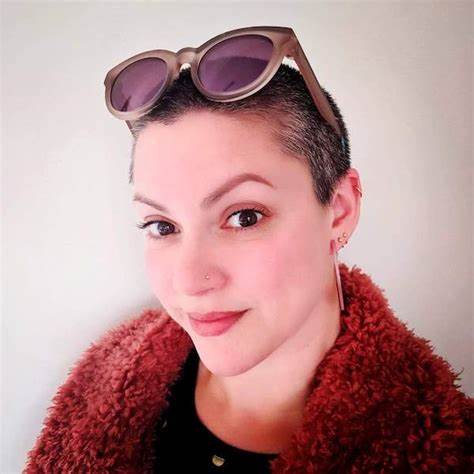 Local LGBTQIA+ advocate, researcher and recent recipient of an Order of Australia honour, Misty Farquhar, is joining a panel of bisexual+ Australians on tonight’s episode of Insight on SBS.
Local LGBTQIA+ advocate, researcher and recent recipient of an Order of Australia honour, Misty Farquhar, is joining a panel of bisexual+ Australians on tonight’s episode of Insight on SBS.
The investigative panel program is asking guests to share their experiences of being bisexual in 2021, and diving into what the issues that can arise when navigating romantic and family relationships as a B in the LGBTQIA+ family.
Speaking to OUTinPerth, Misty shares that they first heard the word bisexual when they were 18 years old.
“I knew that it was my word. It wasn’t like the language suddenly created my sexuality, I knew that I wasn’t straight or gay. I just didn’t have the words for it until then.”
There are now myriad words and identifiers folks who are attracted to more than one gender to describe themselves, and combined under the umbrella of bisexuality, form the largest portion of our community. Though as Misty explains, bisexuals are often underrepresented in the wider world.
“It’s so bizarre to me that we’re the largest group and we’re probably one of the most invisible – I wouldn’t say the most – but certainly for a letter that’s right in the middle of the acronym, it’s often left out.”
Though visibility is still a struggle for many bi+ folks, Misty is confident things are changing, and bisexual communities are carving their own spaces to ensure they are seen, heard and connected.
“It was probably less than ten years ago that I was searching for community, and wasn’t able to find it, so I created it,” Misty says, a nod to their role as founder of Bi+ Community Perth.
“Certainly I wasn’t the only one doing that work, I learned a lot from folks in Victoria who had been doing this stuff for a really long time, but it seemed like it was only happening in Victoria.”
“In the last two or three years we’ve seen groups popping up all around the country, people are actually feeling comfortable to identify themselves as bisexual and there’s a lot more discussion.”
Misty also touches on the evolving nature of ‘bisexual’ as a descriptor, that while at face value the word may seem at odds with non-binary and gender diverse identities like their own, the history and definition of bisexuality embrace inclusion.
“What’s important to me is the history of activism around bisexuality. Brenda Howard was a bisexual woman who started the very first Pride march in the world, so bisexuals have been there, front and centre, for a long long time.
“Initially the word defined attraction to men and women, because in Western societies that was our understanding of gender, but as definition of gender have evolved and we’ve come to understand gender differently, then the definition of bisexual has too.
“I use that language because it’s the language I first heard, and I’m comfortable with the new definition of bisexuality, but I will also use pansexual and that’s probably more appropriate to my identity in that it speaks more to gender not being important to my attraction to other people.”
Insight is specifically asking guests the question: “Why is it so complicated navigating romantic and family relationships when you’re bisexual?”, and as Misty explains everyone’s unique circumstances compel us to forge our own way.
“I’ve got two partners – and not all bisexual people do!” they laugh.
“One of my partners has always known and been really accepting, my other partner who you’ll see on the episode of Insight actually had to rethink their own identity and shift and change on the basis of my identity as a non-binary person.”
“In terms of family it’s been really, really hard. I think theoretically they knew that I was bisexual but actually introducing a partner of the same gender was a lot more confronting than me having a partner of a different gender.”
“There’s a lot personally with family and partners that’s complicated, and that’s not to speak of any of the complications of coming out at work, and complications in the LGBTQIA+ community itself.”
“I hate to say that. It’s really like a family fight that should be kept in the family but it’s also really important for the broader community to understand that’s how bisexuals are feelings. We’re not queer enough, often, to be part of the community, but we’re not straight enough to be part of that community either.”
“We’re not only bisexual when we’re in same-sex relationships, we’re always bisexual, and I think the community really needs to do a lot better.”
You can hear more from Misty Farquhar, Meaghan Holden and the panel on tonight’s episode of SBS Insight at 8:30pm.
You can also connect with Bi+ Community Perth on Facebook, and hear more of our chat with Misty on RTRFM’s All Things Queer program, Wednesday from 11am.
Leigh Andrew Hill
You can support our work by subscribing to our Patreon
or contributing to our GoFundMe campaign.





